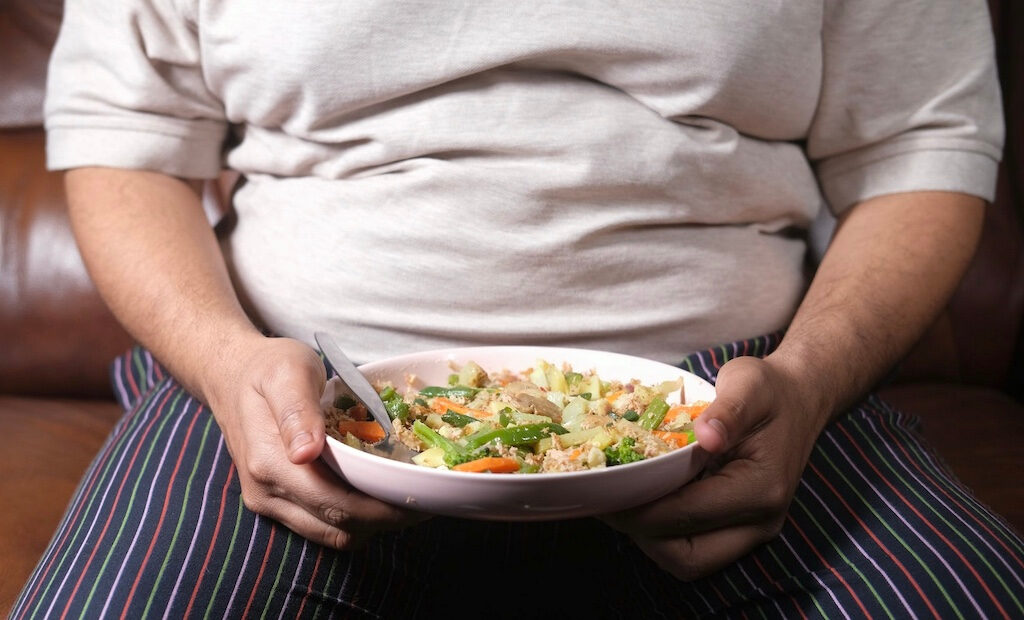Why people consider bariatric surgery for weight loss

Let’s face it, sometimes trying to lose weight can be the most challenging thing to do. Most people find losing weight difficult, even with proper dieting and training. Different studies have concluded that patients who undergo bariatric surgery are more likely to lose about 30% to 50% of weight in three to five months. This article gives an idea of the benefits of bariatric surgery.
What is bariatric surgery?
Bariatric surgery is a broad term for different surgical procedures that can help with losing weight. These surgeries can help shed unwanted weight by changing the patient’s digestive system.
Some of the bariatric surgery procedures include a gastric sleeve, gastric bypass and gastric balloon. Here’s a brief look at all these procedures:
Gastric sleeve: This surgery is designed to reduce the stomach size by creating a banana-sized stomach or sleeve portion to reduce the amount of food the patient can consume. It is sometimes known as Vertical Sleeve Gastrectomy.
Gastric bypass: This procedure aims to shrink the stomach and make it smaller. It’s a complicated surgery that only a qualified surgeon should perform.
Gastric balloon: During this procedure, a surgeon places a balloon that inflates temporarily in the stomach. The idea is to reduce the amount of food that can be eaten.
What are the benefits of bariatric surgery?
Reduces risk of heart disease
People who are obese have a high risk of death caused by myocardial infarction, hypertension and stroke. Various studies have proved this over the years. Bariatric surgery effectively reduces the risk of stroke, peripheral heart disease and coronary heart disease.
Fortunately, bariatric surgery can help reduce that risk and enhance one’s overall well-being. After surgery, the patient’s blood pressure and cholesterol levels usually return to normal.
Eliminates obstructive sleep apnea
Sleep apnea causes type 2 diabetes, acid reflux, asthma, metabolic syndrome, heart disease and daytime sleepiness.
Helps with depression
Most obese people (young or old) find it challenging to partake in some of the activities they enjoy, which often leads to depression and social isolation. Losing unwanted excess weight can help boost confidence and self esteem. It’s been reported that patients who have had bariatric surgery are more likely to experience a 32.7% decrease in their levels of depression after the surgery.
Relieves joint pain
With excess weight, the body tends to put a lot of stress or pressure on the joints, and this causes joint damage. But with weight loss, the strain on joints is relieved, and people enjoy mobility again.
Improves fertility
Overweight females tend to have higher leptin levels (a hormone produced in fatty tissue). Leptin can disrupt the hormone balance in the body and reduce fertility. Having bariatric surgery is one effective way of improving fertility. Studies also show that the risk of miscarriage tends to decline significantly after having bariatric surgery.
Reduces obesity-associated cancer
Over the years, various studies have revealed that cancer of the colon, endometrium, gallbladder, pancreas and breast can be associated with obesity. In the US alone, 14% of all deaths caused by cancer are linked to overweight and obesity.
How can someone know if they are overweight or obese?
Some institutions define obesity as a complex disease involving an excessive amount of fat in the body. The fact that it is regarded as a disease in itself is an indication that it affects one’s health status.
Experts usually interpret obesity levels based on the Body Mass Index (BMI). The value of the BMI is calculated based on the weight and height. For example, if two people have the same amount of weight, but one is shorter than the other, the shorter person has a higher BMI.
To determine whether a person is obese, the practitioner will put their height and weight into a BMI calculator. If the BMI is between 25 and 29.9, it is classified as overweight, and when it is 30 or higher, it falls under the category of obesity.
What people should consider before bariatric surgery
There will be a diet to follow for around two weeks before the surgery. Two days before surgery, a clear liquid diet will be necessary, including a daily no-sugar protein shake, broth, water, decaffeinated coffee or tea, and sugar-free popsicles.
It’s best to avoid caffeinated and carbonated beverages at this stage. Moreover, people shall avoid alcohol and cigarettes since they will affect the healing process.
Weight loss surgeries can have a drastic positive change, but the treatment is costly in countries like the UK, the US and Europe. And in the UK, some patients will need to register on a waiting list. These factors play a role when deciding to have gastric sleeve surgery abroad, but it’s of course best to be equipped with the correct information to make the best decision.
Some patients prefer a healthcare travel agency like Flymedi to plan their treatment abroad. The agency will prepare a customised trip that fits the patient’s needs. The package will include flight, accommodation and airport transfer, giving the time and relief to focus on the recovery.
The editorial unit
The material contained in this article is of the nature of general comment only and does not give advice on medical or any particular matter. Recipients should not act on the basis of this article’s information without taking appropriate advice from a healthcare professional.


















Facebook
Twitter
Instagram
YouTube
RSS